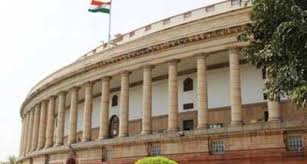Ahmedabad
(Head Office)Address : 506, 3rd EYE THREE (III), Opp. Induben Khakhrawala, Girish Cold Drink Cross Road, CG Road, Navrangpura, Ahmedabad, 380009.
Mobile : 8469231587 / 9586028957
Telephone : 079-40098991
E-mail: dics.upsc@gmail.com

Jan Vishwas Act 2022
News: The recently enacted Jan Vishwas Act, 2022, which aims at easing business regulations, transfers the authority to impose penalties for offences from the judiciary to the bureaucracy. It has raised concerns about the separation of powers, as bureaucrats become both prosecutors and judges.
Background:
• We have covered the act recently. Please refer https://dics.co/current-affairs/jan-vishwas-amendment-ofprovisions-bill-2023-upsc
• Here, we will discuss how the Act raises concerns about Doctrine of Seperation of powers and understand issues related to Jan Vishwas Act, 2022.
What are the issues related to the act?
• The legislation replaces criminal imprisonment with monetary penalties but shifts the authority to impose penalties to the bureaucracy. It amends environmental and pollution control Acts to replace imprisonment with penalties, decided by designated bureaucrats.
• Critics argue the Act offers a form of ‘quasi-decriminalization’, and more efforts are needed for true decriminalization.
• Questions have been raised over the technical competence of adjudicating officers under the Act, especially in environmental legal proceedings.
What is the Doctrine of Separation of powers?
• The doctrine of separation of powers is a political theory that proposes the division of the functions and powers of the government into three distinct branches - the executive, the legislature, and the judiciary.
• The main purpose of this doctrine is to prevent the concentration of power in one person or body, and to ensure that each branch acts as a check and balance on the others.
• The doctrine of separation of powers is considered to be a part of the basic structure of the Constitution, which cannot be amended or violated by any organ of the government.
When does Bureaucracy encroach upon judicial power?
• By Establishing Tribunals – Here Bureaucrats are appointed as Technical members
• Through Statutory regulatory bodies like SEBI, TRAI, CCI
• The government introduces adjudicatory officers in legislation like the Prevention of Money Laundering Act, IT Act, and Food Safety Act. These officers, who are bureaucrats, possess powers to impose penalties or confirm property attachment orders.
Does having the power to impose Fines qualify as a Judicial Function?
• As per Supreme Court’s observations - A “judicial function” should only be performed by an independent judicial authority free from executive control.
• While there is limited precedent on whether imposing penalties qualifies as a “judicial function,” processes involving fact-finding, applying the law, and determining punishment or compensation fundamentally constitute a judicial function.
• Thus, it is government’s duty to present its case before an impartial judge to guarantee citizens a fair trial before any penalty is imposed. The government cannot serve as both prosecutor and judge in its own matter.

Address : 506, 3rd EYE THREE (III), Opp. Induben Khakhrawala, Girish Cold Drink Cross Road, CG Road, Navrangpura, Ahmedabad, 380009.
Mobile : 8469231587 / 9586028957
Telephone : 079-40098991
E-mail: dics.upsc@gmail.com
Address: A-306, The Landmark, Urjanagar-1, Opp. Spicy Street, Kudasan – Por Road, Kudasan, Gandhinagar – 382421
Mobile : 9723832444 / 9723932444
E-mail: dics.gnagar@gmail.com
Address: 2nd Floor, 9 Shivali Society, L&T Circle, opp. Ratri Bazar, Karelibaugh, Vadodara, 390018
Mobile : 9725692037 / 9725692054
E-mail: dics.vadodara@gmail.com
Address: 403, Raj Victoria, Opp. Pal Walkway, Near Galaxy Circle, Pal, Surat-394510
Mobile : 8401031583 / 8401031587
E-mail: dics.surat@gmail.com
Address: 303,305 K 158 Complex Above Magson, Sindhubhavan Road Ahmedabad-380059
Mobile : 9974751177 / 8469231587
E-mail: dicssbr@gmail.com
Address: 57/17, 2nd Floor, Old Rajinder Nagar Market, Bada Bazaar Marg, Delhi-60
Mobile : 9104830862 / 9104830865
E-mail: dics.newdelhi@gmail.com